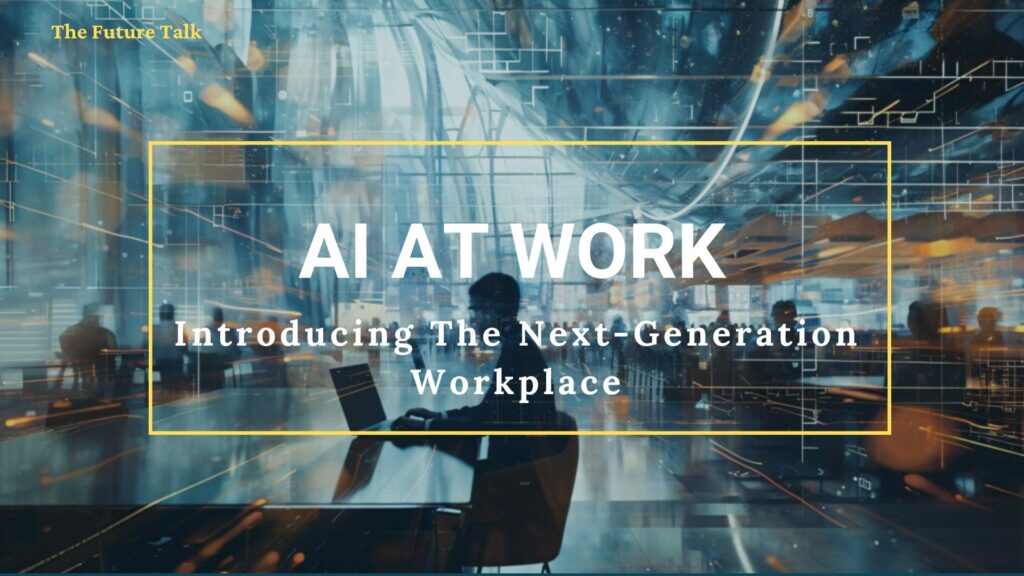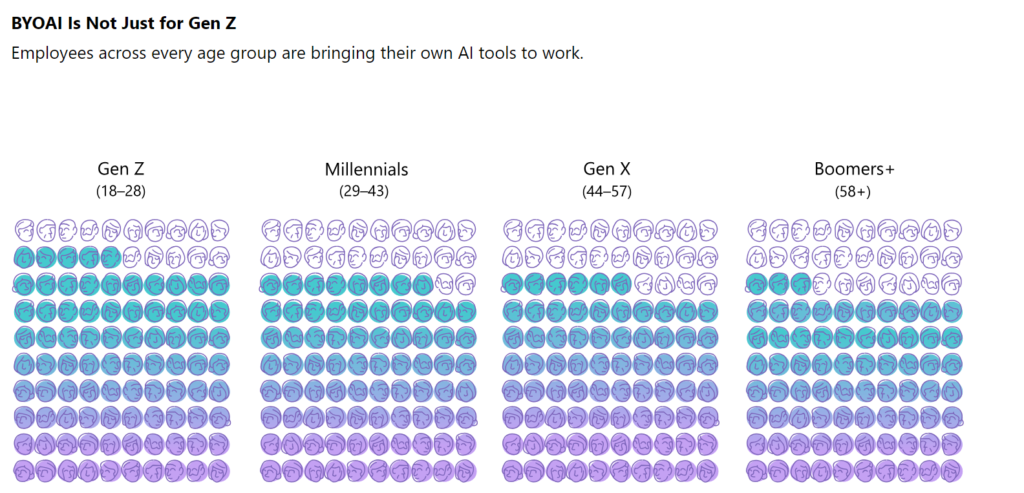AI helps businesses and employees focus more on higher-level cognitive skills by automating routine tasks introducing the next-generation workplace.

Integrating artificial intelligence (AI) into the workplace promises to streamline operations, enhance productivity, and create a more dynamic work environment. AI streamlines operations and frees up employees, allowing them to focus on higher-level cognitive tasks that require creativity, critical thinking, and problem-solving skills.
Many businesses today strive to harness the power of AI, with 92 percent of organizations planning to use AI-driven solutions by 2028, according to the Access Partnership and AWS report. The report revealed that most employers believe their IT departments will benefit more from the use of AI.
They also feel other departments, from sales and marketing (85%) to human resources (78%), will derive significant value from it as well.
AI can automate routine tasks such as data entry, scheduling, and document processing. It can also enhance decision-making while personalizing employee experiences.
In India, AI plays a crucial role as it enables businesses to stay ahead of world innovation. The AI investments of over US$ 4 billion in 2022-23 and projected demand for 1.25-1.35 million AI professionals by 2027 will make the country a major player in this domain.
Also Read: Entrepreneurial Innovation: What Impact Does AI Have on Entrepreneurs?
AI For The Labor Market
AI has emerged as a catalyst for profound changes in the nature of work and the labor market. Its influence in reshaping industries and redefining job roles cannot be overlooked. There are numerous benefits of AI in the workplace, which are as follows:
- Enhanced productivity
- Cost savings
- Improved employee satisfaction
- Increased customer experience
- Data-driven insights
In the 2024 Work Trend Index Annual Report by Microsoft and LinkedIn, 75% of knowledge workers use AI at work. The study highlights that 90% of users feel AI helps them save time. While most business leaders agree AI is a necessity, 79% of them believe their company needs to adopt this technology to stay competitive.
Also Read: Maximizing ROI: How Is AI The Next Big Thing for CEOs?
How Are Gen-Z Workers Effective in the Workplace?
It is no surprise that today’s workers, or Gen-Z employees, are bringing fresh energy and innovative approaches to the workplace. They are more tech-savvy and rapidly hang on with emerging technologies. According to the Microsoft and LinkedIn study, 77% of leaders are more likely to assign significant responsibilities to these early-career professionals with AI expertise.
When making hiring decisions, nearly 70% of business leaders now prioritize AI proficiency over traditional experience, favoring candidates with AI knowledge over more seasoned professionals lacking such skills.
In his statement given to CNBC, LinkedIn Vice President and workforce expert Aneesh Raman said, “Learning basic AI skills, such as prompt engineering, machine learning, or data literacy, is the best insurance to shortcut your competitiveness against people who might have more experience.”
The Microsoft and LinkedIn study further reveals that 78% of AI users are bringing their own AI tools to work (BYOAI). It is even more common in small and medium-sized companies (80%). They are using AI at work not provided by their organizations.
The illustration here shows different age groups using their own AI tools.

2024 Work Trend Index Annual Report from Microsoft and LinkedIn
Closing the Generation Gap with AI
The modern workplace is a mix of diverse generational cohorts, each bringing its values, work styles, and technological proficiencies. The generational gap may sometimes lead to misunderstandings, inefficiencies, job security, and conflicts.
According to a Deloitte report, 32% of the global workforce is comprised of Gen Z, which created an inter-generational divide, highlighting the need for a transformation in engagement strategies.
Gen Zs look for immediate feedback and flexible work environments, which often create clashes with traditional practices, eventually exacerbating workplace tension while lowering overall productivity.
In her statement to Forbes, Curriculum Lead Manager at Praxis Labs, Dr. Anne Snyder said, “In a single workplace, there could be up to five generations. However, we propose reframing from ‘solving the problem of generational gaps’ to ‘unlocking the opportunity and benefit of a multi-generational workforce.’”
She further said, “Each generation brings different experiences, ideas, and norms to the workplace, all of them valuable. It is not the case that older generations create a ‘backbone’ that later generations build on. The reality is we do not only stand on the shoulders of older generations, but there is a great deal of mutual learning at every stage of a career, and across generations that everyone, including businesses, can benefit from.”
Also Read: The Evolution of Work in the Digital Economy: What Lies Ahead?
AI-powered training and learning programmes can cater to the diverse learning preferences of different generations. The technology can assess individual learning patterns and suggest tailored content, ensuring that all age of employees can acquire new skills effectively.
With AI-driven communication tools, organizations can facilitate better collaboration across generational lines. These tools create a collaboration platform that comprises chat, video conferencing, and project management tools, catering to both tech-savvy and tech-cautious employees.
AI can also help in mentorship and knowledge sharing, fostering mutual learning and respect across generations. The technology can also create optimized work environments that cater to the preferences of both Gen Z and Gen X workers.
So as AI continues to evolve, its role in bridging generational gaps will become increasingly significant, helping to drive organizational success.
Artificial Intelligence (AI) is poised to drive innovation in workplace practices. It will introduce smart offices that adapt to employee needs and new business models that harness AI capabilities.
While AI can enhance productivity, drive innovation, and create new job roles, it also necessitates a shift in skills and raises ethical and regulatory concerns. Organizations must embrace AI thoughtfully and strategically to position themselves in the next-generation workplace.
Stay Tuned to The Future Talk for more AI news and insights!
Insightful